#The Killing of Sister George 1968
Text
The End of a Very Long Month - Diary of a Big Ole Gay
Hey Whores, this is the pretty much the diary entry for the rest of the month of April, also I am almost finished with this fucking watchlist. Which is really exciting, a sword of damacoulas over my head fully swallowed.

(I honestly just wanted a Rocky Horror Clip for shit and giggles)
but at the same time I now have so many leads and little films that I want to watch to complete the collection. Sure I don't need to watch George et Georgettes, (the french version), or Theres Three but like I might as well I've literally seen every single other film that people talk about.
but enough navel-gazing thats for later.
Lets get into the Good Stuff
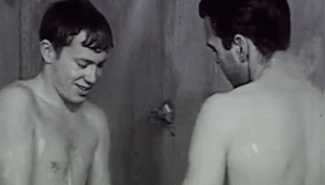
Winter Kept Us Warm (1965) dir. David Secter
A movie that was so subtle gay that the actors didn't even realize thats what they were going for. No, Like for real, that is like a real thing people say about this movie.
Overall this was like a super cute movie. It was just about two guys just meeting in college and vibing and like having quickly developing a deeply intamint and insular relationship something that straight people totally do.

They were totally like ROOMMATES
anyway as a gay man who totally also didn't have a really close friendship that made me realize that hey maybe I'm into dudes this shit made me feel called out.

The Sergeant (1968) dir. John Flynn
Yeah, this kiss is noncon. Sorry to tell you.
The Sergeant is about this older guy who basically has this super toxic working relationship with this enlisted man who he essentially forces to be his secretary.
They have an uneasy friendship with The Sergeant being at turns extremly friendly and extremly cold to this man and his boring wallpaper of a girlfriend.
Anyway the whole reason thats hes like that is that HE IS A FAGGOT, HE IS A DRUNKARD, HE IS CORRUPTING THE FRENCH ARMY WITH HIS ... DEGENERACY!!!!!!
and after the dude rejects him because hes not a homo, The Sergeant just straight up fucking kills himself.
THANKS I HATE IT.

The Killing of Sister George (1968) dir. Robert Aldrich
ok first that is the cutest GIF I've ever seen.
Anyway this ones about LESBIANS HAROLD. These woman GAY, there in a fucking relationship. THEY KISS HAROLD! and they FUCK!
So yeah this was if I rememeber correctly based on a comedy play and the movie turns it into a drama but they kind of fail so its basically like a gay ass camp melodrama and I'm a little hear for it.
I do have to say that the Titelul SIster George is like TOXIC AF but I mean sos Dr. Frankfurther and I still want them to fuck me.

This film is mainly centered around an actress named June Buckridge who plays in this kind of petticoat junction, call a mid-wife type show as a sweet little nun named Sister George, (yes I know that Sisters and Nuns are techically different suck it). She is also *gasp* about to be killed off.
What follows is the fall out of that decision and her extremly toxic relationship between her and her girlfriend. Theres definetly a DMLG aspect to their relationship as well as just generally BDSM and it borders on abusive. But also just woman who like woman dressed as like fucking laural and hardy which is so fucking gay.

They knew what they were doing.
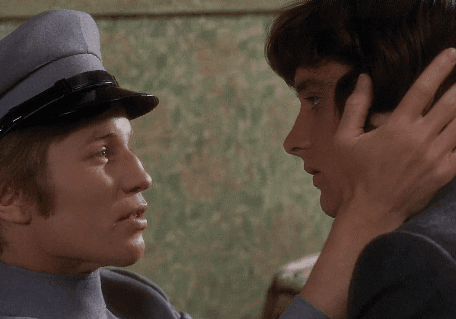
Something For Everyone (1970) dir. Hal Prince
So a couple months ago I watched this really awful porno called The Switch is on with this Guy named Jeff Stryker. So theres this one scene where Stryker is fucking this chick and her husband comes in and just starts getting cucked but then this guy just gets so fucking horny for what can only be described as a sexy bowl of oatmeal that he literally pushes his wife aside and is like UWU fuck me and Jeff Stryker without a single reaction just preceeds to start fucking this guy. It was like watching some type of milling machine and the worker just put a different grain of wood in. What I'm saying is that if your going to watch porn support actors that actually work on being entertaining and present in there sex play.
The other reason why I bring this up is that this is like if one of those Catalinina Bi-Features was actually well thought out, (this obviously excuses Bi-Coastal which is probably one of my favorite pornos ever).
This is a Comedy of Manners were a bisexual disaster who stoacicly fucks everyone trys to sleep his way into getting a castle.
There isn't a lot of PDA with the man he seduces but its actually really nice that they validated the fact that this man can be bisexual and also have like a honest to goodness relationship with this guy, and his sister, and his wife, and HIS MOM. what can I say theres SOMETHING FOR EVERYONE *Roll Credits*
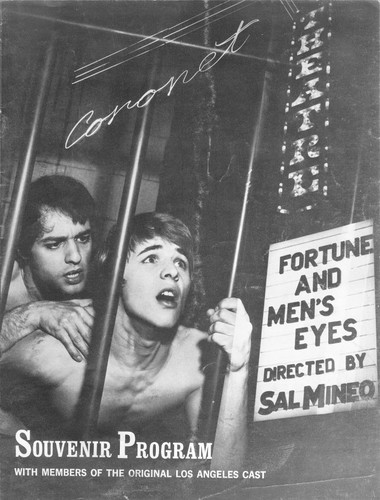
Fortune and Men's Eyes (1971) dir. Harvey Hart
Ok thats a slutty image.
So heres the thing this movie is very gay. Its all about men who want to fuck other men. Sexual. It also, unfortunetly, frames that sexual desire purely through the lens of male rape and explotation.
This is a film about having a prison wife or being someone old man and a lot of the queer relationships are explotative and sexual abusive. A lot of these men are being sexual abused. Which is not a lovely time with the gays.
The film does raise a lot of interesting notions around how situration homosexuality remains seperate from normative queerness or at least simply becames another aspect of normative masculinity and in that lens I think its important to watch and study this film. But I wouldn't say watch this for fun.
Also Michael Greer does a full on drag number and this shows us his dick. Iconic faggot behaivor, we stan.
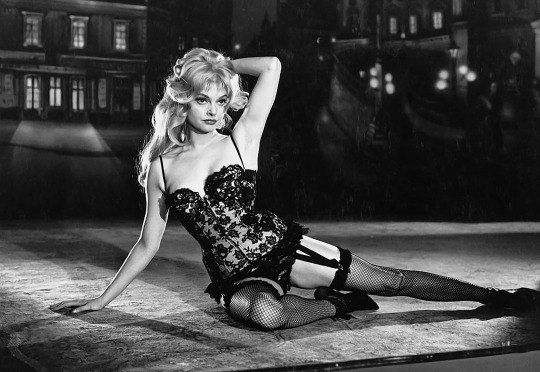
Lulu (1962) dir. Rolf Thiele
Ok I think I would have remembered this scene because she looks super fucking hot in that photo. heres whats up.
This is an adaptation of the Lulu Cycle plays by Wedeman the same plays that G.W.Pabst adapted however this chick is not in louise brooks and I'm going to hold that against her.
also this movie was like super hard to get into and follow. Which I didn't have that issue with the original 1930's film. This movie also just doens't have the right energy for me. I'm sorry but Pabst made a masterpiece. Pabst woke up and said I'm gonna make a movie that goes so hard that it will be a faggots laptop background for like 5 months straight and it is.
This is like um ok theres some hot people but its not that gay. so ew.
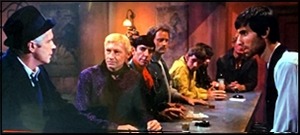
P.J. (1968) dir. John Guillermin
So P.J is another one of these schlocky action detective movies from the 60s that were really popular and this one just so happens to have a gay bar in it.
The scene is very explotative and not in the best way to be honest. Like I love that the fags are just another group of generic ruffians for this saturday morning cartoon and that they even like beat the shit out of him. (one guy scatches him which is first HOT and also a lot to unpack). I also compare the scene to the Dyke Bar in Foxy Brown but theres a few differences.
the dyke bar has both like Femme and Butch women where the gay bar basically only has men who look like Liberace
In Foxy Brown she essentials claims or acts as the guardian for a woman that shes trying to get information out of the woman in these scenes take on a auru of queerness were as P.J. stands as stark opposition to the queer community
The Dyke Bar scene actually makes sense in context with the film. Whereas this film just feels like it shoehorns in a gay bar. For reasons. Reasons that arn't important or neccisary to the plot.

Deathwatch (1966) dir. Vic Morrow
Ok so this is based on play by noted faggot Jean Genet who also did that other hot prison movie.
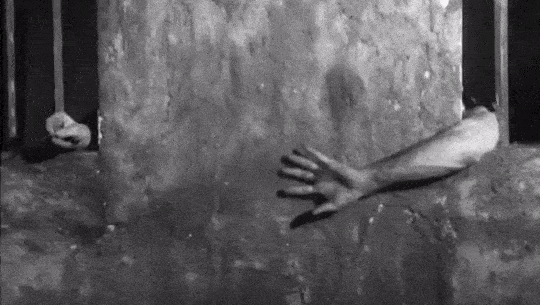
So in this one Leanord Nemoy and a bunch of other guys basically fight over who gets to bang there hot illeterate cellmate. Its very gay but its also more a lot of homos doing theater and less them actually fucking and sucking like in Un Chant d'amour.
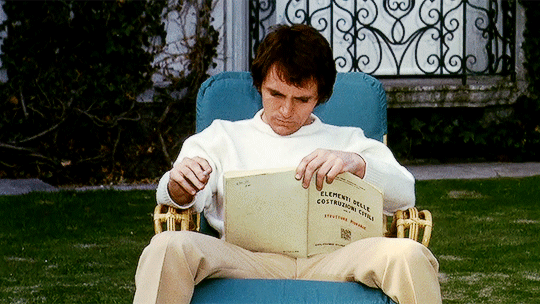
Theorem (1968) dir. Pier Paolo Pasolini
Ok this was my first Pasolini film which I watched in Spanish of all things for reasons. The Reason being that that was the only version with subtitles. Luckily this film is famously light on dialogue.
This one is a little bit like Something for Everyone except a lot more surrealistic.
The Stranger comes to a novea riche family gives them all a good fucking, (including the maid), and then just fucking leaves. They then proceed to have like a religious experience over it???
This is Pasolini so its really weird and allegorical but also like super fucking cool. Damn now I want to rewatch it.

Pink Narcissus (1971) dir. James Bidgood
Ok just imagine if Kenneth Anger made a full length feature porno and this is basically that. A young male prostitute lazes about his apartment and has a series of erotic dreams.
As a movie Its giving hints of Anger as well as de Rome and it is just an insanely weird/cool/kinda hot thing to look at.
Its on Internet Archive btw.

Fellini Satyricon (1969) dir. Federico Fellini
Ok so this is like one of those old ass Bible story epics from the 30s except its based on a roman novel or history or something and also it is the GAYEST thing you've ever seen. Basically this hot blonde guy rescues his twink husband from a guy dressed as a pig (don't ask), then they fuck, then his brother shows up and just like steals his husband and then there entire neighborhood collapses in an earthquake. After that I stopped asking questions and I'm pretty sure we don't see his hot twink husband again so RIP i guess.
To be honest I have no idea what happened in this movie but it sure was cool and i need to watch more Italian cinema.
Anyway whores thats enough out of me today. I'll probably return near the end of may with the last 10 or so films left on the watchlist.
#diary#early queer film#finding the first gay kiss#Winter Kept Us Warm 1965#The Sergeant 1968#The Killing of Sister George 1968#Something for Everyone 1970#fortune and men's eyes#Fortune and Men's Eyes 1971#Lulu 1962#P.J. 1968#Deathwatch 1966#Theorem 1968#Pink Narcissus 1971#Fellini Satryicon 1969#slurs reclaimed#suicide CW#homophobia CW
4 notes
·
View notes
Text
1968 [Chapter 6: Athena, Goddess Of Wisdom]
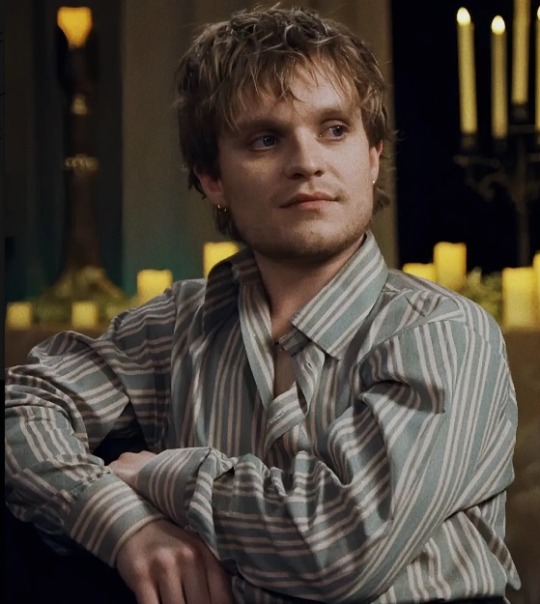
Series Summary: Aemond is embroiled in a fierce battle to secure the Democratic Party nomination and defeat his archnemesis, Richard Nixon, in the presidential election. You are his wife of two years and wholeheartedly indoctrinated into the Targaryen political dynasty. But you have an archnemesis of your own: Aemond’s chronically delinquent brother Aegon.
Series Warnings: Language, sexual content (18+ readers only), violence, bodily injury, character deaths, New Jersey, age-gap relationships, drinking, smoking, drugs, pregnancy and childbirth, kids with weird Greek names, historical topics including war and discrimination, math.
Word Count: 5.2k
Let me know if you’d like to be tagged! 🥰
💜 All of my writing can be found HERE! 💜
Here at the midway point in our journey—like Dante stumbling upon the gates of the Inferno—would it be the right moment to review what’s at stake? Let’s begin.
It’s the end of August. The delegates of the Democratic National Convention in Chicago officially vote to name Aemond the party’s presidential candidate. His ascension is aided by 10,000 antiwar demonstrators who flood into the city and threaten to set it ablaze if Hubert Humphrey is chosen instead. At the end—in his death rattle—Humphrey begs to be Aemond’s running mate, one last humiliation he cannot resist. Humphrey is denied. Eugene McCarthy, dignity intact, boards a commercial flight to his home state of Minnesota without looking back.
Aemond selects U.S. Ambassador to France, Sargent Shriver, to be his vice president. Shriver is a Kennedy by marriage—his wife, JFK’s younger sister Eunice, just founded the Special Olympics—and has previously headed the Office of Economic Opportunity, the Peace Corps, and the Chicago Board of Education. He also served as the architect of the president’s “War on Poverty” before distancing himself from the imploding Johnson administration. Shriver is not a concession to fence-sitting moderates or Southern Dixiecrats, but an embodiment of Aemond’s commitment to unapologetic progressivism. Richard Nixon spends the weekend campaigning in his native California, a gold vein of votes like the mines settlers rushed to in 1848. George Wallace announces that he will run as an Independent. Racists everywhere rejoice.
Phase III of the Tet Offensive is underway in Vietnam; 700 American soldiers have been killed this month alone. Riots break out in military prisons where the U.S. Army is keeping their deserters. The North Vietnamese refuse to allow Pope Paul VI to visit Hanoi on a peace mission. President Johnson calls both Aemond and Nixon to personally inform them of this latest evidence of the communists’ unwillingness to negotiate in good faith. Daeron and John McCain remain in Hỏa Lò Prison. The draft swallows men like the titan Cronus devoured his own children.
In Eastern Europe, the Russians are crushing pro-democracy protests in the largest military operation since World War II as half a million troops roll into Czechoslovakia. In Caswell County, North Carolina, the last remaining segregated school district in the nation is ordered by a federal judge to integrate after years of stalling. On the Fangataufa Atoll in the South Pacific, France becomes the fifth nation to successfully explode a hydrogen bomb. In Mexico City, 300,000 students gather to protest the authoritarian regime of President Diaz Ordaz. In Guatemala, American ambassador John Gordon Mein is murdered by a Marxist guerilla organization called the Rebel Armed Forces. In Columbus, Ohio, nine guards are held hostage during a prison riot; after 30 hours, they’re rescued by a SWAT team.
The latest issue of Life magazine brings worldwide attention to catastrophic industrial pollution in the Great Lakes. The first successful multiorgan transplant is carried out at Houston Methodist Hospital. The Beatles release Hey Jude, the best-selling single of 1968 in the U.S., U.K., Australia, and Canada. NASA’s Apollo lunar landing program plans to launch a crewed shuttle next year, just in time to fulfill John F. Kennedy’s 1962 promise to put a man on the moon “before the end of the decade.” If this is successful, the United States will win the Space Race and prove the superiority of capitalism. If it fails, the martyred astronauts will join all the other ghosts of this apocalyptic age, an epoch born under bad stars.
The night sky glows with the ancient debris of the Aurigid meteor shower. From down here on Earth, Jupiter is a radiant white gleam, visible with the naked eye and admired since humans were making cave paintings and Stonehenge. But Io is a mystery. With a telescope, she becomes a dust mote entrapped by Jupiter’s gravity; to the casual observer, she doesn’t exist at all.
~~~~~~~~~~
What was it like, that very first time? It’s strange to remember. You’re both different people now.
It’s May, 1966. You and Aemond are engaged, due to be married in three short weeks, and if you get pregnant then it’s no harm, no foul. In reality, it will end up taking you over a year to conceive, but no one knows that yet; you are living in the liminal space between what you imagine your life will be and the cold blade of the truth. Aemond has brought you to Asteria for the weekend, an increasingly common occurrence. The Targaryens—minus one, that holdout prodigal son, always glowering from behind swigs of rum and clouds of smoke—have already begun to treat you like a member of the family. The flock of Alopekis yap excitedly and lick your shins. Eudoxia learns your favorite snacks so she can have them ready when you arrive.
One night Aemond takes your hand and leads you to Helaena’s garden, darkness turned to twilight in the artificial luminance of the main house. You can hear distant voices, chatter and laughter, and the Beatles’ Rubber Soul spinning on the record player in the living room like a black hole, gravity that not even light can escape when it is wrenched over the event horizon.
You’re giggling as Aemond pulls you along, faster and faster, weaving through pathways lined with roses and sunflowers and butterfly bushes. Your high heels sink into soft, fertile earth; the air in your lungs is cool and infinite. “Where are we going?”
And Aemond grins back at you as he replies: “To Olympus.”
In the circle of hedges guarded by thirteen gods of stone, Aemond unzips your modest pink sundress and slips your heels off your feet, kneeling like he’s proposing to you again. When you are bare and secretless, he draws you down onto the grass and opens you, claims you, fills you to the brim as the crystalline water of the fountain patters and Zeus hurls his lightning bolts, an eternal storm, unending war. It’s intense in a way it never was with your first boyfriend, a sweet polite boy who talked about feminist theory and followed his enlightened conscience all the way to Vietnam. This isn’t just a pleasant way to pass a Friday night, something to look forward to between differential equations textbooks and calculus proofs. With Aemond it’s a ritual; it’s something so overpowering it almost scares you.
“Aphrodite,” Aemond murmurs against your throat, and when you try to get on top he stops you, pins you to the ground, thrusts hard and deep, and you try not to moan too loudly as you surrender, his weight on you like a prophesy. This is how he wants you. This is where you belong.
Has someone ever stitched you to their side, pushing the needle through your skin again and again as the fabric latticework takes shape, until their blood spills into your veins and your antibodies can no longer tell the difference? He makes you think you’ve forgotten who you were before. He makes you want to believe in things the world taught you were myths.
But that was over two years ago. Now Aemond is not your spellbinding almost-stranger of a fiancé—shrouded in just the right amount of mystery—but your husband, the father of your dead child, the presidential candidate. You miss when he was a mirage. You miss what it felt like to get high on the idea of him, each taste a hit, each touch a rush of toxins to the bloodstream.
Seven weeks after your emergency c-section, you are healing. Your belly no longer aches, your bleeding stops, you can rejoin the living in this last gasp of summer. Ludwika takes you shopping and you pick out new swimsuits; you’ve gone up a size since the baby, and it shows no signs of vanishing. In the fitting room, Ludwika chain-smokes Camel cigarettes and claps when you show her each outfit, ordering you to spin around, telling you that there’s nothing like Oleg Cassini back in Poland. You plan to buy three swimsuits. Ludwika insists you get five. She pays with Otto’s American Express.
That afternoon at home in your blue bedroom, you get changed to join the rest of the family down by the pool, your first swim since Ari was born. You choose Ludwika’s favorite: a dreamy turquoise two-piece with flowing transparent fabric that drapes your midsection. You can still see the dark vertical line of where the doctors stitched you closed. Now you and Aemond match; he got his scar on the floor of the Breakers Hotel in Palm Beach, you earned yours at Mount Sinai Hospital in Manhattan. There are gold chains on your wrist and looped around your neck. Warm sunlight and ocean wind pours in through the open windows.
Aemond appears in the doorway and you turn to show him, proud of how you’ve pulled yourself together, how this past year hasn’t put you in an asylum. His right eye catches on your scar and stays there for a long time. Then at last he says: “You don’t have something else to wear?”
~~~~~~~~~~
It’s Labor Day, and Asteria has been descended upon by guests invited to celebrate Aemond’s nomination. The dining room table is overflowing with champagne, Agiorgitiko wine, platters of mini spanakopitas, lamb gyros, pita bread with hummus and tzatziki, feta cheese and cured meats, grilled octopus, baklava, and kourabiethes. Eudoxia is rushing around sweeping up crumbs and shooing tipsy visitors away from antique vases shipped here from Greece. Aemond’s celebrity endorsers include Sammy Davis Jr., Sonny and Cher, Andy Williams, Bobby Darin, Warren Beatty, Shirley MacLaine, Claudine Longet, and a number of politicians; but the most notable attendee is President Lyndon Baines Johnson, shadowed by Secret Service agents. He won’t be making any surprise appearances on the campaign trail for Aemond—in the present political climate, he would be more of a liability than an asset—but he has travelled to Long Beach Island tonight to offer his well-wishes. From the record player thrums Jimi Hendrix’s All Along The Watchtower.
When you finish getting ready and arrive downstairs, you spot Aegon: slouching in a velvet chair over a century old, hair shagging in his eyes, sipping something out of a chipped mug he clasps with both hands, flirting with a bubbly early-twenties campaign staffer. Aegon smiles and waves when he sees you. You wave back. And you think: When did he become the person I look for when I walk into a room?
Now Aemond is beside you in a blue suit—beaming, confident, his glass eye in place, a hand resting on your waist—and Aegon isn’t smiling anymore. He takes a gulp of what is almost certainly straight rum from his mug and returns his attention to the campaign staffer, his lady of the hour. You picture him undressing her on his shag carpet and feel disorienting, violent envy like a bullet.
Viserys is already fast asleep upstairs, but the rest of the family is out en masse to charm the invitees and pose for photographs. Alicent, Helaena, and Mimi—trying very hard to act sober, blinking too often—are chit-chatting with the other political wives. Otto is complaining about something to Criston; Criston is pretending to listen as he stares at Alicent. Ludwika is smoking her Camels and talking to several young journalists who are ogling her, enraptured. Fosco and Sargent Shriver are entertaining a group of guests with a boisterous, lighthearted debate on the merits of Italian versus French cuisine, though they agree that both are superior to Greek. The nannies have brought the eight children to be paraded around before bedtime. All Cosmo wants to do is clutch your hand and “help” you navigate around the living room, warning you not to step on the small, weaving Alopekis. When Mimi attempts to steal her youngest son away, he ignores her, and as she begins to make a scene you rebuke her with a harsh glare. Mimi retreats meekly. She has never argued with you, not once in over two years. You speak for Aemond, and Aemond is a god.
As the children are herded off to their beds by the nannies, Bobby Kennedy—presently serving as a New York senator despite residing primarily on his family’s compound in Massachusetts—approaches to congratulate Aemond. His wife Ethel is a tiny, nasally, scrappy but not terribly bright woman, five months pregnant with her eleventh child, and you have to get away from her like a hand pulled from a hot stove.
“You know, I was considering running,” Bobby says to Aemond, chuckling, good-natured. “But when I saw you get in the race, I thought better of it! Maybe I’ll give it a go in ’76, huh?”
“Hey, kid, what a tough year you’ve had,” Ethel tells you, patting your forearm. You can’t tear your eyes from her small belly. She has ten living children already. I couldn’t keep one. What kind of sense does that make? “We’re real sorry for your trouble, aren’t we, Bobby?”
Now he is nodding somberly. “We are. We sure are. We’ve been praying for you both.”
Aemond is thanking them, sounding touched but entirely collected. You manage some hurried response and then excuse yourself. Your hands are shaking as you cross the room, not really seeing it. You walk right into Lady Bird Johnson. She takes pity on you; she seems to perceive how rattled you are. “Oh Lyndon, look, it’s just who we were hoping to speak to! The next first lady of the United States. And how beautiful you are, just radiant. How do you keep your hair so perfect? That glamorous updo. You never have a single strand out of place.” Lady Bird lays a palm tenderly on your bare shoulder. She has an unusual, angular face, but a wise sort of compassion that only comes from suffering. Her husband is an unrepentant serial cheater. “I’ll make you a list of everything you need to know about the White House. All the quirks of the property, and the hidden gems too!”
“You’re so kind. We’ll see what happens in November…”
“Good evening, ma’am,” President Johnson says, smiling warmly. He’s an ugly man, but there’s something hypnotic that lives inside him and shines through his eyes like the blaze of a lighthouse. He pulls you in through the dark, through the storm; he promises you answers to questions you haven’t thought of yet. LBJ is 6’4 and known for bullying his political adversaries with the so-called “Johnson Treatment”; he leans in and makes rapid-fire demands until they forget he’s not allowed to hit them. “I have to tell you frankly, I don’t envy anyone who inherits that den of rattlesnakes in Washington D.C.”
“Lyndon, don’t frighten her,” Lady Bird scolds fondly.
“Everyone thinks they know what to do about Vietnam,” LBJ plods onwards. “But it’s a damned if you do, damned if you don’t clusterfuck. If you keep fighting, they call you a murderer. But if you pull the troops out and South Vietnam falls to the communists, every single man lost was for nothing, and you think the families will stand for that? Their kid in a body bag, or his legs blown off, or his brain scrambled? There’s no easy answer. It’s a goddamn bitch of a quagmire.”
Lady Bird offers you a sympathetic smirk. Sorry about all this unpleasantness, she means. When he gets himself worked up, I can’t stop him. But you find yourself feeling sorry for President Johnson. It will be difficult for him to learn how to fade into disgraced obscurity after once being so omnipotent, so beloved. Reinvention hurts like hell: fevers raging, bones mending, healing flesh that itches so ferociously you want to claw it off.
LBJ gives Lady Bird a look, quick but meaningful. She acquiesces. This has happened a thousand times before. “It was so nice talking to you, dear,” she tells you, then crosses the living room to pay her respects to Alicent.
The president steps closer, looming, towering. The Johnson Treatment?? you think, but no; he isn’t trying to intimidate you. He’s just curious.
“Do you know what Aemond’s plan is for ‘Nam?” LBJ asks, eyes urgent, voice low. “I’m sure he has one. He’s sworn to end the draft as soon as he gets into office, but how is he going to make sure the South Vietnamese can fend off the North themselves? We’re trying to train the bastards, but if we left they’d fold in months. It would be the first war the U.S. ever lost. Does he understand that?”
“He doesn’t really discuss it with me.” That’s true; you know his policies, but only because they are a constant subject of conversation within the family, something you all breathe like oxygen.
“We can’t let Nixon win,” LBJ continues. “It’s mass suicide to leave the country in his hands. The man can’t hold his liquor anymore, getting robbed by Kennedy in ’60 broke something in him. He gets sloshed and shoves his aids around, makes up conspiracies in his head. He’s a paranoid little prick. He’ll surveille the American people. He’ll launch a nuke at Moscow.”
You honestly don’t know what he expects you to say. “I’ll pass the message along to Aemond.”
“People love you, Mrs. Targaryen.” LBJ watching you closely. “Believe it or not, they used to love me too. But I still remember how to play the game. You’re the only reason Aemond is leading the polls in Florida. You can get him other states too. Jack needed Jackie. Aemond needs you. And you’ve had tragedies, and that’s a damn shame. But don’t you miss an opportunity. You take every disappointment, every fucked up cruelty of life and find a way to make it work for you. You pin it to your chest like a goddamn medal. Every single scar makes you look more mortal to those people going to the ballot box in November. You want them to be able to see themselves in you. It helps the mansions and the millions go down smoother.”
“President Johnson!” Aegon says as he saunters over, huge mocking grin. He thumps a closed fist against the Texan’s broad chest; the Secret Service agents standing ten feet away observe this sternly. “How thoughtful of you to be here, taking time out of your busy schedule, squeezing us in between war crimes.”
“The mayor of Trenton,” LBJ jabs.
“The butcher of Saigon.”
Now the president is no longer amused. “You’ve never accomplished anything in your whole damn life, son. Your obituary will be the size of a postage stamp. I’m looking forward to reading it someday soon.” He leaves, rejoining Lady Bird at the opposite end of the room.
You frown at Aegon, disapproving. You’re dressed in a sparkling, royal blue gown that Aemond chose. “That was unnecessary.”
Aegon is wearing an ill-fitting green shirt—half the buttons undone—khaki pants, and tan moccasins. “I just did you a favor.”
“What happened to your new girlfriend? Shouldn’t she be getting railed in your basement right now? Did she have a prior commitment? Did she have a spelling test to study for? Those can be tricky, such complex words. Juvenile. Inappropriate. Infidelity.”
“You know what he brags about?” Aegon says, meaning LBJ. “That he’s fucked more women by accident than John F. Kennedy ever did on purpose.”
“That sounds…logistically challenging.”
“He’s a lech. He’s a freak. He tells everyone on Capitol Hill how big his cock is. He takes it out and swings it around during meetings.”
“And that’s all far less than admirable, but he’s not going to do something like that around me.”
“How do you know?”
“Because he’s not an idiot,” you say impatiently. “He was perfectly civil. And I was getting interesting advice.”
Aegon rolls his eyes, exasperated. “Yeah, okay, I’m sorry I crashed your cute little pep talk with Lyndon Johnson, the most hated man on the planet.”
“I guess you can’t stop Aemond from touching me, so you have to terrorize LBJ instead.”
“Shut the fuck up,” Aegon hisses, and his venom stuns you. And now you’re both trapped: you loosed the arrow, he proved you hit the mark. He’s flushing a deep, mortified red. Your guts are twisting with remorse.
“Aegon, wait, I didn’t mean—”
He whirls and storms off, shoving his way through the crowd. People glare at him as they clutch their glasses and plates, sighing in that What else do you expect from the worthless son? sort of way. You’re still gaping blankly at the place where Aegon stood when Aemond finds you, snakes a hand around the back of your neck, and whispers through the painstakingly-arranged wisps of hair that fall around your ear: “Follow me.”
It’s not a question. It’s a command. You trail him through the living room, into the foyer, and through the front door, not knowing what he wants. Outside the moon is a sliver; the light from the main house makes the stars hard to see. “Aemond, you’ll never believe the conversation I just had with LBJ. He really unloaded, I think the stress is driving him insane. I have to tell you what he said about—”
“Later.” And this is jarring; Aemond doesn’t put anything before strategy. He grabs your hand as he turns into Helaena’s garden, and only then do you understand what he wants. Instinctively, your legs lock up and your feet stop moving. Aemond tugs you onward. He wants it to be like the very first time. He intends to start over with you, the dawning of a new age in the dead of night.
Hidden in the circle of hedges, he takes your face roughly in his hands and kisses you, drinks you down like a vampire, consumes you like wildfire. But your skull echoes with panic. I don’t want him touching me. I don’t want another child with him. “Aemond…”
He doesn’t hear you, or acts like he doesn’t, or mistakes it for a murmur of desire, or chooses to believe it is. He has you down on the grass under the vengeful gaze of Zeus, the fountain splashing, the sounds of the house a low foreign drone. He yanks off your panties, but he doesn’t want you naked like he always did before. He pushes the hem of your shimmering cobalt gown up to your hips and unbuckles his trousers. And you realize as he’s touching you, as he’s easing himself into you: He doesn’t want to have to look at my scar.
You can’t ignore him, you can’t pretend it’s not happening. He’s too big for that. It’s a biting fullness that demands to be felt. So you kiss him back, and knot your fingers in his short hair like you used to, and try to remember the things you always said to him before. And when Aemond is too absorbed to notice, you look away from him, from the statue of Zeus, and peer up into the stone face of Athena instead: the goddess who never married and who knows the answer to every question.
“I love you,” Aemond says when it’s over, marveling at the slopes of your face in the dim ethereal light. “Everything will be right again soon. Everything will be perfect.”
You conjure up a smile and nod like you believe him.
“What did LBJ say?”
“Can I tell you later tonight? After the party, maybe? I just need a few minutes.”
“Of course.” And now Aemond pretends to be patient. He buckles his belt and returns to the main house, his blood coursing with the possibilities only you can make real, his skin damp with your sweat.
For a while—ten minutes, twenty minutes—you lie there on the cool grass wondering what it was like for all those mortals and nymphs, being pinned down by Zeus and then having Hera try to kill them afterwards, raising ill-fated reviled bastards they couldn’t help but love. What is heaven if the realm of the immortals is so cruel? Why does the god of justice seem so immune to it?
When at last you rise and walk back towards the house, you find Mimi at the edge of the garden. She’s on her knees and retching into a rose bush; she’s cut her face on the thorns, but she hasn’t noticed yet. She’s groaning; she seems lost.
You reach for her, gripping her bony shoulders. “Mimi, here, let’s get you upstairs…”
“No,” she blubbers, tears streaming down her scratched cheeks. “Just go away. Leave me.”
“Mimi—”
“No!” she roars, a mournful hemorrhage as she slaps your hands until you release her.
“You don’t have to be this way,” you tell her, distraught. “You can give up drinking. We’ll help you, me and Fosco and Ludwika. You can start over. You can be healthy and present again, you can live a real life.”
Mimi stares up at you, her grey eyes glassy and bloodshot but with a vicious, piercing honesty. “My husband hates me. My kids don’t know I exist. What the hell do I have to be sober for?”
You weren’t expecting this. You don’t know what to say. “We can help make the world better.”
“The world would be better without me in it.”
Then Mimi curls up on the grass under the rose bush, and stays there until you return with Fosco to drag her upstairs to her empty bed.
~~~~~~~~~~
The next afternoon, you’re lying on a lounge chair by the pool. Tomorrow the family will leave Asteria and embark upon a vigorous campaign schedule that will continue, with very few breaks, until Election Day on Tuesday, November 5th. The children are splashing and shrieking in the pool with Fosco, but you aren’t looking at them. You’re staring across the sun-drenched emerald lawn at the Atlantic Ocean. You’re envisioning all the bones and splinters of sunken ships that must litter the silt of the abyss; you’re thinking that it’s a graveyard with no headstones, no memory. Your swimsuit is a red one-piece. Your eyes are shielded by large black Ray Bans aviator sunglasses. Your gaze flicks up to the cloudless blue sky, where all the stars and planets are invisible.
Jupiter has nearly a hundred moons; the largest four were discovered by Galileo in 1610. Europa is a smooth white cosmic marble with a crust of ice, beautiful, immaculate. Ganymede, the largest moon in our solar system and the only satellite with its own magnetic field, is rumored to have a vast underground saltwater ocean that may contain life. Callisto is dark and indomitable, riddled with impact craters; because of her dynamic atmosphere and location beyond Jupiter’s radiation belts, she is considered the best location for possible future crewed missions to the Jovian system. But Io is a wasteland. She has no water and no oxygen. Her only children are 400 active volcanoes, sulfur plumes and lava flows, mountains of silicate rock higher than Mount Everest, cataclysmic earthquakes as her crust slips around on a mantle of magma. Her daily radiation levels are 36 times the lethal limit for humans. If Hades had a home in our corner of the galaxy, it would be Io. She glows ruby and gold with barren apocalyptic fury. You can feel yourself turning poisonous like she is. You can feel your skin splitting open as the lava spills out.
Aegon trots out of the house—red swim trunks, cheap red plastic sunglasses, no shirt, a beach towel slung around his neck, flip flops—and kicks your chair. “Get up. We’re going sailing.”
“I don’t want to talk to anybody.”
“Great, because I’m not asking you to talk. I’m telling you to get in my boat.”
You don’t reply. You don’t think you can without your voice cracking. Aegon crouches down beside your chair and pushes your sunglasses up into your Brigitte Bardot-inspired hair so he can see your face. Your eyes are pink, wet, desperately sad. Deep troubled grooves appear in his forehead as he studies you. Gently, wordlessly, he pats your cheek twice and lowers your sunglasses back over your eyes. Then he stands up again and offers you his hand.
“Let’s go,” Aegon says, softly this time. You take his hand and follow him down to the boathouse.
Five vessels are currently kept there. Aegon’s sailboat is a 25-foot Wianno Senior sloop, just roomy enough for a few passengers. He’s had it since long before you married into the Targaryen family. It is white with hand-painted gold accents; the name Sunfyre adorns the stern. He unmoors the boat, pushes it out into the open water, and raises the sails.
You glide eastbound over the glittering crests of waves, slowly at first, then faster as the sails catch the wind. Aegon has one hand on the rudder, the other grasping the ropes. And the farther you get from shore, the smaller Asteria seems, and the Targaryen family, and the presidential election, and the United States itself. Now all that exists is this boat: you, Aegon, the squawking gulls, the school of mackerel, the ocean. The sun beats down; the breeze rips strands of your hair free. The battery-powered record player is blasting White Room by Cream. When you are far enough from land that no journalists would be able to get a photo, Aegon takes two joints and his Zippo out of the pocket of his swim trunks. He puts both joints between his lips, lights them, and passes you one. Then he stretches out beside you on the deck, gazing up at the September sky.
You ask as your muscles unravel and your thoughts turn light and easy to share: “Why did you bring me out here?”
“So you can drown yourself,” Aegon says, and you both laugh. “Nah. I used to go sailing all the time when I was a teenager. It always made me feel better. It was the only place where I could really be alone.”
You consider the math. “Wow. You haven’t been a teenager since before I was in kindergarten.”
“It’s weird to think about. You don’t seem that young.”
“Thanks, I guess. You don’t seem that old.”
“Maybe we’re meeting in the middle.” He inhales deeply and then exhales in a rush of smoke. “What do you think, should I get an earring?”
“Yeah.”
“Why?”
“It might shock Otto so bad it kills him.”
“I’ll get two.” And then Aegon says: “It’s not cool for you to mock me.”
You are dismayed; you didn’t mean to hurt him. “I wasn’t.”
“Yes, you were. You were mocking me. You mocked me about the receipt under my ashtray, and then you mocked me again last night. I’m up for a lot of things, but I can’t handle that. Okay?”
“Okay.” You turn your head so you can see him: shaggy blonde hair, stubble, perpetual sunburn, the softness of his belly and his chest, flesh you long to vanish into like rain through parched earth. “Aegon?”
He looks over at you. “Io?”
“I don’t want Aemond to touch me either.”
He’s surprised; not by what you feel, but because you’ve said it aloud, a treason like Prometheus giving mankind the gift of fire. “What are we gonna do about it?”
If you were the goddess of wisdom, maybe you’d know.
#aegon ii targaryen#aegon targaryen#aegon targaryen ii#aegon ii#aegon targaryen x reader#aegon x reader#aegon ii x y/n#aegon ii x you#aegon ii targaryen x reader#aegon ii x reader#aegon ii fanfic#aegon ii fic
165 notes
·
View notes
Photo
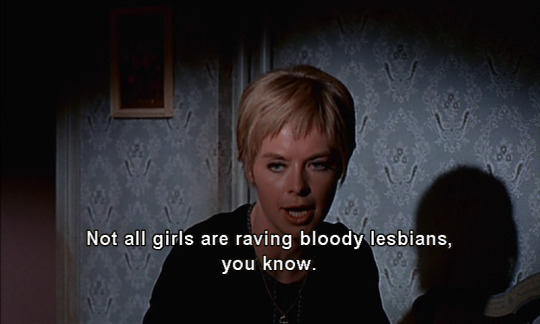
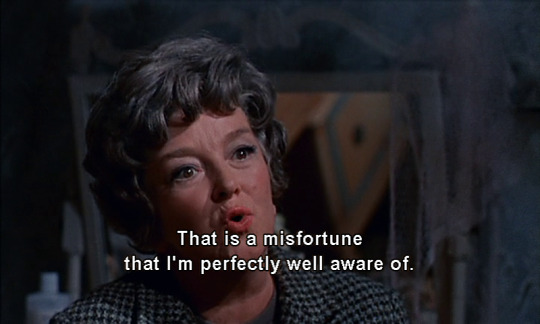
The Killing of Sister George (1968) dir. Robert Aldrich
#filmtag#lgbtcinema#the killing of sister george#robert aldrich#beryl reid#susannah york#film#fm#*#q#subtitles#w#dsg#probably one of my favourite first watches of last year#1k
3K notes
·
View notes
Text

Good post op.
For those interested, here are some such films to know herstory:
"Mädchen in Uniform" (1931)
"Anna and Elizabeth" (1933)
"All about Eve" (1950)
"Olivia" (1951)
"Mädchen in Uniform" (1951), dir. Géza von Radványi
"Girls in Uniform" (1951), dir. Alfredo B. Crevenna
"No Exit" (1954)
"The Girl with the Golden Eyes" (1961)
"Walk on the Wild Side" (1962)
"The Nun" (1966)
"Persona" (1966) (yes, I'm including it)
"Belle de Jour" (1967)
"Les Biches" (1968)
"The Killing of Sister George" (1968)
"Baby Love" (1969)"
"The Exquisite Cadaver" (1969)
"The Vampire Lovers" (1970)
"Daughters of Darkness" (1971)
"The Bitter Tears of Petra von Kant" (1972)
"The Beguines" (1972)
"Successive Slidings of Pleasure" (1974)
"Twice a Woman" (1979)
"Desert Hearts" (1985)
"I’ve Heard the Mermaids Singing" (1987)
"Betty" (1992)
"Les Voleurs" (1996)
"8 Women" (2002)
"Nathalie…" (2003)
"Night Fangs" (2005)
"Backstage" (2005)
"Pretty Persuasion" (2005)
"Loving Annabelle" (2006)
"The Page Turner" (2006)
"Notes on a Scandal" (2006)
"Bandaged" (2009)
"Chloe" (2009), American remake of "Nathalie…"
"Cracks" (2009)
"Gigola" (2010)
"Bloomington" (2010)
"A Perfect Ending" (2012)
"Concussion" (2013)
"Nymphomaniac: Vol. II" (2013) (going controversial with this one)
"Tru Love" (2013)
"Clouds of Sils Maria" (2014)
"Sand Dollars" (2014)
"The Duke of Burgundy" (2014)
"Unexpected" (2014)
"4.48" (2014)
"Carol" (2015)
"Freeheld" (2015)
"Summertime" (2015)
"AWOL" (2016), dir. Deb Shoval
"Bird of Prey" (2016)
"Foreign Body" (2016)
"Allure" (2017)
"Atomic Blonde" (2017)
"Daphne du Maurier: In Rebecca’s Footsteps" (2017)
"The Party" (2017)
"You, Me and Him" (2017)
"Lizzie" (2018)
"The Favourite" (2018)
"Suspiria" (2018)
"The Bisexual" (2018)
"Clementine" (2019)
"Greta" (2019) (anon's* choice ❤️)
"Saint Maud" (2019)
"Ammonite" (2020)
"I Care a Lot" (2020)
"T11 Incomplete" (2020)
"Take Me Home" (2020)
"Parallel Mothers" (2021)
"Vigil" (2021)
"Benedetta" (2021)
"Anaïs in love" (2021)
"Eileen" (2023)
"May December" (2023)
Some of them are subtextual, some of them explicit, some--to use Tumblr's favorite word--problematique, some do not revolve around romance, some are cinematic masterpieces, some utter trash.
*Edit:

Ok, I laughed out loud, but on second thought? #valid
#should i go ~controversial and add 'may december' (2023)? it is persona coded and todd haynes knows what he's doing#films#list#there are some that do not fit here because not every age difference is a gap (see mulholland drive)#and others like 'Miss Viborg' and 'Starlet' that are not really what people are looking for
36 notes
·
View notes
Text
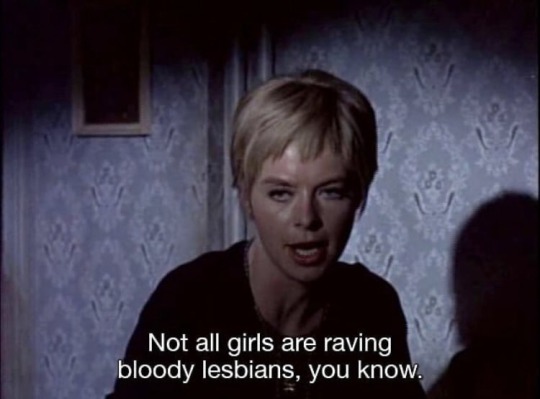
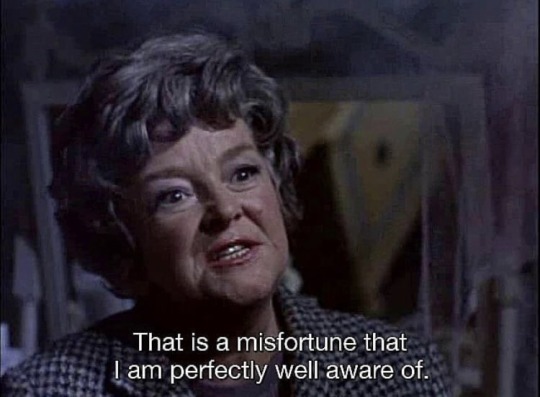
The Killing of Sister George (1968)
via lesbiancinema
#lesbian#lesbians#wlw#sapphic#sapphics#lgbt#dyke#dykes#lgbt women#lesbian cinema#lesbian film#lesbian movie#lesbian films#lesbian movies#the killing of sister george#movies#films#film tumblr#movie tumblr#idylesaphique#film
259 notes
·
View notes
Text
This is my carefully curated playlist based on Tumblr's favorite Mafia movie, Goncharov! It is arranged into story order but you can enjoy it on shuffle as well! Normally I color code which songs are about who, but this time around I wanted to leave it up to interpretation, although I think you might be able to tell who my favorite character is lol!
Winter In Naples
“You Need The Fear of God Put Back Into You Goncharov”
Taikatalvi by Nightwish from Imaginaerum • Ruler of Everything by Tally Hall from Marvin’s Marvelous Mechanical Museum • Birds With Broken Wings by Ben Caplan from Birds With Broken Wings • Istanbul by They Might Be Giants from Flood • The Cat Came Back by The Laurie Berkner Band from Laurie Berkner’s Favorite Kid Songs • Clint Eastwood by Gorillaz from Gorillaz • Champagne Taste by Eartha Kitt from Totally Crazy • Amar y Vivir by Carlos Rivera from Mexicano • Crazy = Genius by Panic! At The Disco from Death of a Bachelor • Farewell Wanderlust by The Amazing Devil from The Horror and the Wild • Time is Running Out by Muse from Absolution • Aha! by Imogen Heap from Ellipse • Modern Day Cain by I DON’T KNOW HOW BUT THEY FOUND ME from Modern Day Cain
The Ball
“Your Husband Is As Tasteless As His Counterfeit ‘Boots’, Dear Sister”
Vampire by People In Planes from Beyond the Horizon • Don’t Mess With Me by temposhark from The Invisible Line • There’s A Good Reason These Tables Are Numbered Honey, You Just Haven’t Thought of It Yet by Panic! At The Disco from A Fever You Can’t Sweat Out • Perhaps, Perhaps, Perhaps by Daniel Boaventura & Carlos Rivera from Your Song • Careless Whisper by George Michael from Ladies & Gentlemen The Best of George Michael • Real Men by Mitski from Lush • As The World Falls Down by David Bowie from Labyrinth • I’m A Funny Dame by Eartha Kitt from The Essential Eartha Kitt • Sin un Amor by Carlos Rivera from Mexicano • Bad Romance by Lady Gaga from The Fame Monster • Señor Amante by Kika Edgar from Señor Amante • Take Me To Church by Hozier from Hozier • Disarm by The Civil Wars from The Civil Wars • Femme Fatale by Coyote Kid from The Skeleton Man • Monkeys Uptown by Iron & Wine from Kiss Each Other Clean
Two Cigarettes, One Flame
“A Perfect Pearl Need Only Circumstance, No?”
Pretty Little Head by Eliza Rickman from O, You Sinners • Runs In The Family by Amanda Palmer from Who Killed Amanda Palmer? • 551 by Dessa from Castor the Twin • Wife by Mitski from Lush • The Bed Song by Amanda Palmer from Piano Is Evil • The Moon Will Sing by The Crane Wives from Coyote Stories • Evening On the Ground (Lilith’s Song) by Iron & Wine from Woman King • Better Love by Hozier from Better Love • Arms of A Thief by Iron & Wine from Around the Well • Where Evil Grows by The Poppy Family, Terry & Susan Jacks from A Good Thing Lost: 1968-1973 • Eric by Mitski from Lush • Angie by Bert Jansch from Bert Jansch • I Want To Be Evil by Eartha Kitt from That Bad Eartha • Don’t Get My Hopes Up by S.J. Tucker from Mischief • You Made Me the Thief of Your Heart by Sinéad O’Connor from So Far: The Best of Sinéad O’Conner • Dulce Mal by The Chamanas from Dulce Mal • Don’t You Dare Forget the Sun by Get Scared from Built For Blame, Laced With Shame
The Clock
“How Can Time Be Still, And Still Running Out?”
Blindness by Metric from Fantasies • Come Away To The Water by Maroon 5 & Rozzi from The Hunger Games: Songs of District 12 And Beyond • Era Escuro by Faun from Luna • Fly Me to The Moon by Melodicka Bros. from Fly Me to the Moon (Space Rock) • Glass Heart Hymn by Paper Route from The Peace of Wild Things • Where Butterflies Never Die by Broken Iris from The Eyes of Tomorrow • I Hope Your World Is Kind by Auri from Auri • Ballad of Jeremiah Peacekeeper by Poets of the Fall from Temple Of Thought • Broken Crown by Mumford & Sons from Babel • Dirt And Roses by Rise Against from Avengers Assemble • Marked Man by Mieka Pauley from The Science of Making Choices • If I Had A Heart by Fever Ray from Fever Ray • I Think I Smell A Rat by The White Stripes from White Blood Cells • Paranoid Android by Radiohead from OK Computer • Cool by Ansel Elgort & Mike Faist from West Side Story • That’s My Boy by Vast from Turquoise & Crimson
Ambrosia, The Blood of The Gods
“I’m Gonna Kill That Mario!”
Familia by Nicki Minaj, Angel AA & Bantu from Spider-Man: Into The Spiderverse • Onward & Upward by Tommee Profitt & Fleurie from Gloria Regali • The Horror and The Wild by The Amazing Devil from The Horror and the Wild • Breaking the Law by Judas Priest from British Steel • I’m Always Walking as Somebody Else from American Murder Song from Murder Ballads of 1816: The Year Without A Summer • The House Of The Dead by NADA5150 & Mr.Kitty from The House Of The Dead • Adore Me by StarKid Productions from Black Friday • Kill My Friends by gP. from Kill My Friends • 7 Rings by ChuggaBoom from 7 Rings • Heavy Rain by Youth Man from New Moons Vol.1 • Loki by The Mechanisms from The Bifrost Incident • Warflower by The Mayan Factor from In Lake Ch’ • Dead Butterflies by Architects from Meteor • Man or a Monster by Sam Tinnesz & Zayde Wolf from Man or a Monster • The Weeping Song by Nick Cave & The Bad Seeds from The Good Son
The Bridge
“If We Really Were In Love You Wouldn’t Have Missed”
What Love Can Heartbreak Allow by Ben Caplan from Old Stock • The Wolf by PHILDEL from The Disappearance of the Girl • Animal Impulses by IAMX from The Unified Field • Don’t Make Me by MALINDA from Don’t Make Me • Shout by Tears for Fears from Songs From The Big Chair • Don’t Call Me Angel by Ariana Grander, Miley Cyrus & Lana Del Rey from Charlie’s Angels • Heaven Knows by The Pretty Reckless from Going to Hell • Castle by Halsey from BADLANDS • Mineshaft 2 by Dessa from Castor, the Twin • Die Anywhere Else by Julia Henderson & Lorenzo de Sequera from Dusk • A Death by an Unkindness from 4 Songs • Despedida by Antonio Pinto & Shakira from Love In The Time of Cholera • Daughter of the Sea by Sharm & Alison M. Sparrow from Daughter of The Sea • Jane Doe by Hail The Sun from Wake • Bag of Bones by Mitski from Lush • Girl Into Devil (I Belong to Me) by S.J. Tucker from Stolen Season
The Train
“We Could Burn It All Down”
Panacea For The Poison by Flobots from Survivor Story • Here Come the Ravens by Aviators from Dystopian Fiction • All Night Long by Peter Murphy from Love Hysteria • A Sadness Runs Through Him by The Hoosiers from The Trick To Life • The Deep by PHILDEL from Wave Your Flags • Irish Hour by Saint Sister from Where I Should End • There Is Still Time by Lorn from The Maze to Nowhere • Happy by Mitski from Puberty 2 • Burned Out by dodie from Human • Where To Begin by Adam Watts from When a Heart Wakes Up • Hungry Like the Wolf by Hidden Citizens & Tim Halperin from Reawakenings • Dark Matter by Les Friction from Dark Matter • I Found by Amber Run from 5AM • The Hearse (Stripped) by Matt Maeson from Bank On The Funeral • The Wolf in Your Darkest Room by Matthew Mayfield from Recoil • The Devil Wears A Suit by Kate Miller-Heidke from Nightflight • Sinking Ship by CAKE from Sinking Ship • Lessons by SOHN from Tremors • Black Sun by Death Cab for Cutie from Black Sun • Die Today by The Txlips Band & Guitar Gabby from Queens of A New Age • Blood Moon by Saint Sister from Madrid • Cinder and Smoke by Iron & Wine from Our Endless Numbered Days • Girl With One Eye by Florence + The Machine from Lungs
The Apple
“Tell Them I’m Sorry, For I Have No Sorrow Left to Give”
The Wanting Comes In Waves/Repaid by The Decemberists from Hazards of Love • Conversations at the End of the World by Kishi Bashi from String Quartet Live • My Way by Chase Holfelder from Major to Minor Vol.2 • We Are Your Nightmares by Cast of Nevermore from Nevermore: The Imaginary Life & Mysterious Death of Edgar Allan Poe • Oh Death by Noah Gunderson from Saints & Liars • The Coldest Goodbye by Mary Kate Wiles from Spies Are Forever • Cathedrals by Jump. Little Children from Magazine • Carry Me Out by Mitski from Bury Me At Makeout Creek • Ghosts With Heartbeats by Plastic Patina from Ghosts With Heartbeats • Blood by My Chemical Romance from The Black Parade
“The film is gone, the only proof thereof
Upon a boot, a tag mark’d Goncharov...”
Quotes from the movie Goncharov (1973) provided through art by: @theshitpostcalligrapher @when-sanpape-arts @inthefallofasparrow @not-the-blue @cloudmancy
#Spotify#not trek#goncharov#goncharov 1973#gonch posting#katya goncharova#goncharov sofia#andrey daddano#mario ambrosini#ice pick joe#fan playlist#movie playlist#dessa#the amazing devil#panic at the disco#mitski#carlos rivera#florence + the machine#hozier#my chemical romance#death cab for cutie#dodie#unreality
79 notes
·
View notes
Photo

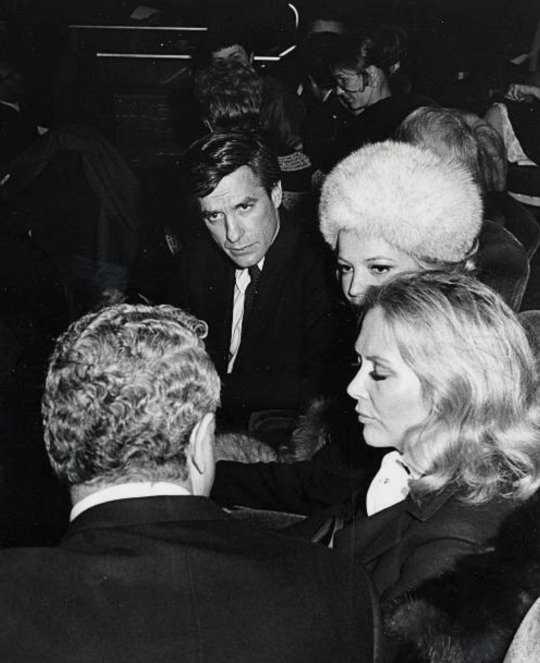
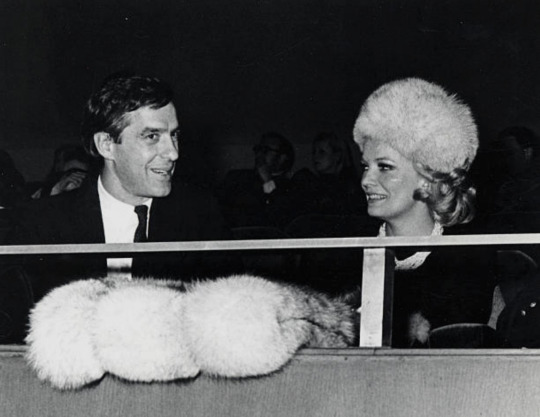
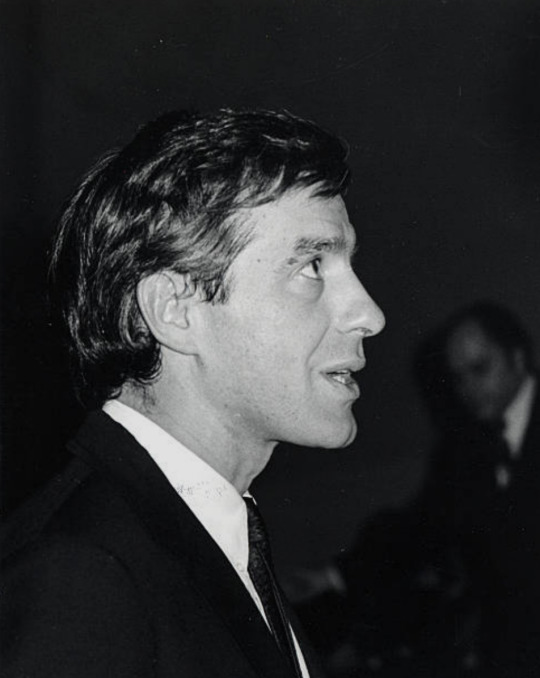

John Cassavetes and Gena Rowlands at the NYC premiere of The Killing of Sister George (dir. Robert Aldrich, 1968)
[1/2/3/4/5]
41 notes
·
View notes
Text
"Recognizing and activating the coexistence of multiple histories is more easily done from the vantage point of temporal removal than in the present. It is worth noting that this is not equivalent to the progressivist notion that “it gets better.” Oppression thrives in forms too covert and invisible to warrant such a hasty claim. At the same time, one is more likely to form a reparative relationship to a problematic film when one acknowledges being in a different moment than when the film was first released. This is precisely the kind of “temporal awareness” that Meira Likierman, in analyzing Melanie Klein’s concept of reparation, says orients a person toward making good with his or her objects.
The camp reading is a perfect example of how this operates. As Susan Sontag claims, “things are campy, not when they become old— but when we become less involved in them, and can enjoy, instead of be frustrated by, the failure of the attempt.” For Sontag, a (reparative) reading of camp might be most rewarding for a spectator when the camp is unintentional. By this account, earnest representations, or better, representations perceived as earnest at the moment of their release, age to become pleasurably ironic,
inflated, and mannerist, and therefore fail to be taken seriously in contemporary encounters. We might consider films such as Cruising (William Friedkin, 1980) and The Killing of Sister George (Robert Aldrich, 1968) as optimal examples of camp “bad objects” because their tropes and their stereotypes of gays and lesbians as perverse fetishists become that much more obvious with time. Their repetition can now be so effortlessly detected that the retrograde depictions become amusing. "
Marc Francis, For Shame!: On the History of Programming Queer Bad Objects
20 notes
·
View notes
Text
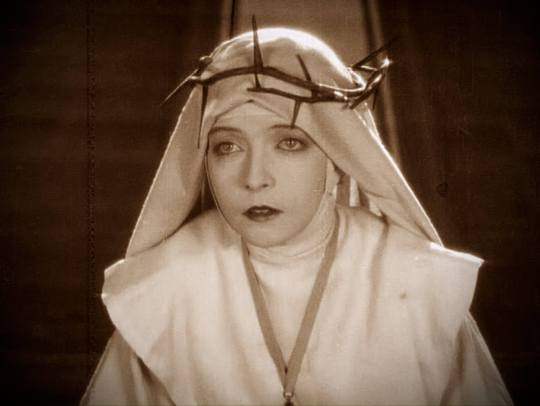
Lillian Gish in The White Sister (Henry King, 1923)
Cast: Lillian Gish, Ronald Colman, Gail Kane, J. Barney Sherry, Charles Lane, Juliette La Violette, Gustavo Serena. Screenplay: George V. Hobart, Charles E. Whittaker; titles: Will M. Ritchey, Don Bartlett; based on a novel by Frances Marion Crawford and a play by Crawford and Walter C. Hackett. Cinematography: Roy F. Overbaugh. Art direction: Robert M. Haas. Film editing: Duncan Mansfield.
Henry King was a director of solid competence whose career extended from 1915 to 1962, amassing credits on IMDb for directing 116 films. Even so, his movies are not particularly memorable. Who, today, seeks out The Song of Bernadette (1943) or Wilson (1944), two of the "prestige" films he directed for 20th Century-Fox? In his great auteurist survey The American Cinema: Directors and Directions, 1929-1968, the best Andrew Sarris has to say about the movies directed by King is that they display a "plodding intensity." King was, in Sarris's words, "turgid and rhetorical in his narrative style," and that certainly holds true for The White Sister. Lillian Gish had a great rapport with the camera, able to suggest an entire range of emotions with her eyes alone -- hence the many close-ups she is given in her films. But King, filming on location in Italy and Algeria, is more interested in the settings than in the people inhabiting them. (Roy Overbaugh's cinematography is one of the film's virtues.) Nor does he seem interested in moving the story along, dragging it out to a wearisome 143 minutes. When Prince Chiaromonte (Charles Lane), the father of Angela (Gish) and her wicked half-sister, the Marchesa di Mola (Gail Kane), goes out fox-hunting, we're pretty sure that disaster is about to happen. But King stretches out the hunt so long that when Chiaromonte is killed the accident has no great emotional impact. And when Angela takes her vows as a nun, effectively preventing her from marrying Captain Severini (Ronald Colman), the man she loves but thinks is dead, King gives us every moment of the ceremony, trying to generate suspense by occasional cuts to Severini's ship steaming homeward. There's also an erupting volcano at the picture's end, but King fails to stage or cut it for real suspense. Gish is fine as always, though she's not called on to do much but look pious and to go cataleptic when Angela receives the news of Severini's supposed death. Colman is handsome but not much else, and Kane's villainy seems to be signaled by her talking out of the side of her mouth, as if channeling Dick Cheney many years in advance.
2 notes
·
View notes
Text
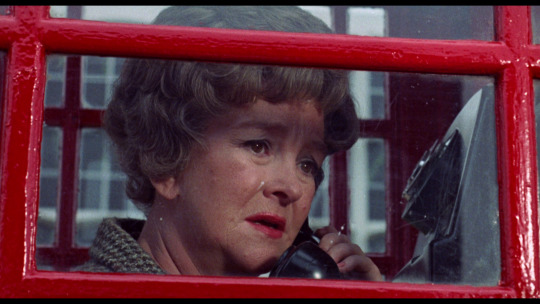
Triângulo feminino (The killing of Sister George), de Robert Aldrich (EUA, 1968)
0 notes
Text
On this date, the really important stuff, from the world of music…
April 18th
2020 - Paul McCartney
Paul McCartney, Elton John, Taylor Swift, The Rolling Stones, Stevie Wonder and several other stars performed from their homes on the One World: Together At Home concert during the coronavirus pandemic. The event organized by Global Citizen of New York City and curated by singer Lady Gaga was in support of the World Health Organization.
2017 - Prince
Numerous opioid painkillers were found at US singer Prince's home shortly after his death last year, unsealed court documents show. Some of the pills discovered at Prince's Paisley Park estate in Minnesota had prescriptions in the name of his friend and bodyguard. But the documents do not offer evidence about the source of the fentanyl that killed the singer on 21 April 2016.
2015 - Green Day
Green Day was inducted into the Rock and Roll Hall of Fame as a part of the 2015 class, in their first year of eligibility.
2012 - The Beatles
An original and extremely rare 1963 mono copy of The Beatles ‘Please Please Me’ album, signed by the Fab Four, sold on an eBay auction for nearly $25,000. Paul McCartney and John Lennon both signed their names with “love” in royal blue ink whereas George Harrison and Ringo Starr signed their names in midnight blue ink. The autographs were signed in May of 1963.
2006 - Elton John
A sale of clothes belonging to Sir Elton John raised more than $700,000 (£395,000) for the singer's Aids charity. Over 10,000 pieces were sold during a five-day sale in New York City at the specially-created shop, Elton's Closet, at New York's Rockefeller Centre.
2006 - U2
A line from U2's 1992 hit 'One' was voted the UK's favourite song lyric after in a poll of 13,000 people by music channel VH1. The line "One life, with each other, sisters, brothers" came top. The Smiths lyric "So you go, and you stand on your own, and you leave on your own, and you go home, and you cry, and you want to die" from the song 'How Soon is Now' came second in the poll, followed by "I feel stupid and contagious, here we are now, entertain us", from Nirvana's 'Smells Like Teen Spirit' which was voted into third place.
1973 - Crosby, Stills, Nash & Young
The Crosby, Stills Nash & Young documentary Journey Through The Past, directed by Neil Young, debuted at the Dallas Film Festival. The experimental film featured concert footage from 1966 onward, backstage footage and art film-like sequences.
1970 - Bruce Springsteen
Steel Mill, (featuring Bruce Springsteen) played in the Main Gym at Ocean County College in New Jersey. Tickets cost $2.00.
1964 - The Beatles
The Beatles appeared on the UK TV comedy program The Morecambe and Wise Show, playing ‘This Boy’, ‘All My Loving’, and ‘I Want to Hold Your Hand’ and also participate in comedy sketches with Eric Morecambe and Ernie Wise. The Beatles also held the UK and US No.1 position on this day with 'Can't Buy Me Love'.
1963 - Paul McCartney
After a Beatles performance at the Royal Albert Hall in London for the radio show Swingin' Sound '63, Paul McCartney met the actress Jane Asher for the first time. They later became engaged, but never married and split up in 1968. The relationship inspired several Beatles songs, including 'All My Loving' and 'I'm Looking Through You.'
1 note
·
View note
Text

John Lennon
October 9,1940 – December 8,1980
John Winston Lennon was born at Liverpool Maternity Hospital to Julia (Stanley) (1914–1958) and Alfred Lennon (1912–1976). Alfred was a merchant seaman of Irish descent who was away at the time of his son's birth. His parents named him John Winston Lennon after his paternal grandfather, John "Jack" Lennon, and Prime Minister Winston Churchill. His father was often away from home but sent regular pay cheques to 9 Newcastle Road, Liverpool, where Lennon lived with his mother; the cheques stopped when he went absent without leave in February 1944. When he eventually came home six months later, he offered to look after the family, but Julia, by then pregnant with another man's child, rejected the idea. After her sister Mimi complained to Liverpool's Social Services twice, Julia gave her custody of Lennon.
In July 1946, Lennon's father visited her and took his son to Blackpool, secretly intending to emigrate to New Zealand with him. Julia followed them – with her partner at the time, Bobby Dykins – and after a heated argument, his father forced the five-year-old to choose between them. In one account of this incident, Lennon twice chose his father, but as his mother walked away, he began to cry and followed her. According to author Mark Lewisohn, however, Lennon's parents agreed that Julia should take him and give him a home. A witness who was there that day, Billy Hall, has said that the dramatic portrayal of a young John Lennon being forced to make a decision between his parents is inaccurate. Lennon had no further contact with Alf for close to 20 years.
Throughout the rest of his childhood and adolescence, Lennon lived with Mimi and her husband George Toogood Smith, who had no children of their own. His aunt purchased volumes of short stories for him, and his uncle, a dairyman at his family's farm, bought him a mouth organ and engaged him in solving crossword puzzles. Julia visited Mendips on a regular basis, and John often visited her at 1 Blomfield Road, Liverpool, where she played him Elvis Presley records, taught him the banjo, and showed him how to play "Ain't That a Shame" by Fats Domino.
In 1956, Julia bought John his first guitar. The instrument was an inexpensive Gallotone Champion acoustic for which she lent her son five pounds and ten shillings on the condition that the guitar be delivered to her own house and not Mimi's, knowing well that her sister was not supportive of her son's musical aspirations. Mimi was sceptical of his claim that he would be famous one day, and she hoped that he would grow bored with music, often telling him, "The guitar's all very well, John, but you'll never make a living out of it."
On 15 July 1958, Julia Lennon was struck and killed by a car while she was walking home after visiting the Smiths' house. His mother's death traumatized the teenage Lennon, who, for the next two years, drank heavily and frequently got into fights, consumed by a "blind rage". Julia's memory would later serve as a major creative inspiration for Lennon, inspiring songs such as the 1968 Beatles song "Julia".
Lennon's senior school years were marked by a shift in his behavior. Teachers at Quarry Bank High School described him thus: "He has too many wrong ambitions and his energy is often misplaced", and "His work always lacks effort. He is content to 'drift' instead of using his abilities." Lennon's misbehavior created a rift in his relationship with his aunt.
Lennon failed his O-level examinations and was accepted into the Liverpool College of Art after his aunt and headmaster intervened. At the college he began to wear Teddy Boy clothes and was threatened with expulsion for his behaviour. In the description of Cynthia Powell, Lennon's fellow student and subsequently his wife, he was "thrown out of the college before his final year".
At the age of 15, Lennon formed a skiffle group, the Quarrymen. Named after Quarry Bank High School, the group was established by Lennon in September 1956. By the summer of 1957, the Quarrymen played a "spirited set of songs" made up of half skiffle and half rock and roll. Lennon first met Paul McCartney at the Quarrymen's second performance, which was held in Woolton on 6 July at the St Peter's Church garden fête. Lennon then asked McCartney to join the band.
McCartney said that Aunt Mimi "was very aware that John's friends were lower class", and would often patronise him when he arrived to visit Lennon. According to McCartney's brother Mike, their father similarly disapproved of Lennon, declaring that Lennon would get his son "into trouble". McCartney's father nevertheless allowed the fledgling band to rehearse in the family's front room. During this time Lennon wrote his first song, "Hello Little Girl", which became a UK top 10 hit for the Fourmost in 1963.
McCartney recommended that his friend George Harrison become the lead guitarist. Lennon thought that Harrison, then 14 years old, was too young. McCartney engineered an audition on the upper deck of a Liverpool bus, where Harrison played "Raunchy" for Lennon and was asked to join. Stuart Sutcliffe, Lennon's friend from art school, later joined as bassist. Lennon, McCartney, Harrison and Sutcliffe became "The Beatles" in early 1960. In August that year, the Beatles were engaged for a 48-night residency in Hamburg, in West Germany, and were desperately in need of a drummer. They asked Pete Best to join them. Lennon's aunt, horrified when he told her about the trip, pleaded with Lennon to continue his art studies instead. After the first Hamburg residency, the band accepted another in April 1961, and a third in April 1962. As with the other band members, Lennon was introduced to Preludin while in Hamburg, and regularly took the drug as a stimulant during their long, overnight performances.
McCartney took over on bass after Sutcliffe decided to stay in Hamburg, and Best was replaced with drummer Ringo Starr; this completed the four-piece line-up that would remain until the group's break-up in 1970. The band's first single, "Love Me Do", was released in October 1962 and reached No. 17 on the British charts. They recorded their debut album, Please Please Me, in under 10 hours on 11 February 1963, a day when Lennon was suffering the effects of a cold, which is evident in the vocal on the last song to be recorded that day, "Twist and Shout". The Lennon–McCartney songwriting partnership yielded eight of its fourteen tracks. With a few exceptions, one being the album title itself, Lennon had yet to bring his love of wordplay to bear on his song lyrics, saying: "We were just writing songs ... pop songs with no more thought of them than that – to create a sound. And the words were almost irrelevant". In a 1987 interview, McCartney said that the other Beatles idolized Lennon: "He was like our own little Elvis ... We all looked up to John. He was older and he was very much the leader; he was the quickest wit and the smartest."
The Beatles achieved mainstream success in the UK early in 1963. Lennon was on tour when his first son, Julian, was born in April. During their Royal Variety Show performance, which was attended by the Queen Mother and other British royalty, Lennon poked fun at the audience: "For our next song, I'd like to ask for your help. For the people in the cheaper seats, clap your hands ... and the rest of you, if you'll just rattle your jewelry." After a year of Beatlemania in the UK, the group's historic February 1964 US debut appearance on The Ed Sullivan Show marked their breakthrough to international stardom. A two-year period of constant touring, filmmaking, and songwriting followed, during which Lennon wrote two books, In His Own Write and A Spaniard in the Works.
Lennon grew concerned that fans who attended Beatles concerts were unable to hear the music above the screaming of fans, and that the band's musicianship was beginning to suffer as a result. Lennon's "Help!" expressed his own feelings in 1965: "I meant it ... It was me singing 'help'". He had put on weight (he would later refer to this as his "Fat Elvis" period), and felt he was subconsciously seeking change. In March that year he and Harrison were unknowingly introduced to LSD when a dentist, hosting a dinner party attended by the two musicians and their wives, spiked the guests' coffee with the drug. When they wanted to leave, their host revealed what they had taken, and strongly advised them not to leave the house because of the likely effects. Later, in a lift at a nightclub, they all believed it was on fire; Lennon recalled: "We were all screaming ... hot and hysterical." In March 1966, during an interview with Evening Standard reporter Maureen Cleave, Lennon remarked, "Christianity will go. It will vanish and shrink ... We're more popular than Jesus now – I don't know which will go first, rock and roll or Christianity." The comment went virtually unnoticed in England but caused great offence in the US when quoted by a magazine there five months later.
After the band's final concert on 29 August 1966, Lennon filmed the anti-war black comedy How I Won the War – his only appearance in a non-Beatles feature film – before rejoining his bandmates for an extended period of recording, beginning in November. Lennon had increased his use of LSD and, according to author Ian MacDonald, his continuous use of the drug in 1967 brought him "close to erasing his identity". The year 1967 saw the release of "Strawberry Fields Forever", hailed by Time magazine for its "astonishing inventiveness", and the group's landmark album Sgt. Pepper's Lonely Hearts Club Band, which revealed lyrics by Lennon that contrasted strongly with the simple love songs of the group's early years.
In late June, the Beatles performed Lennon's "All You Need Is Love" as Britain's contribution to the Our World satellite broadcast, before an international audience estimated at up to 400 million. Intentionally simplistic in its message, the song formalized his pacifist stance and provided an anthem for the Summer of Love. After the Beatles were introduced to the Maharishi Mahesh Yogi, the group attended an August weekend of personal instruction at his Transcendental Meditation seminar in Bangor, Wales. During the seminar, they were informed of Epstein's death. "I knew we were in trouble then", Lennon said later. "I didn't have any misconceptions about our ability to do anything other than play music. I was scared – I thought, 'We've fucking had it now.'" McCartney organized the group's first post-Epstein project, the self-written, -produced and -directed television film Magical Mystery Tour, which was released in December that year. While the film itself proved to be their first critical flop, its soundtrack release, featuring Lennon's Lewis Carroll-inspired "I Am the Walrus", was a success.
Led by Harrison and Lennon's interest, the Beatles travelled to the Maharishi's ashram in India in February 1968 for further guidance. While there, they composed most of the songs for their double album The Beatles, but the band members' mixed experience with Transcendental Meditation signaled a sharp divergence in the group's camaraderie. On their return to London, they became increasingly involved in business activities with the formation of Apple Corps, a multimedia corporation composed of Apple Records and several other subsidiary companies. Lennon described the venture as an attempt to achieve "artistic freedom within a business structure". Released amid the Protests of 1968, the band's debut single for the Apple label included Lennon's B-side "Revolution", in which he called for a "plan" rather than committing to Maoist revolution. The song's pacifist message led to ridicule from political radicals in the New Left press. Adding to the tensions at the Beatles' recording sessions that year, Lennon insisted on having his new girlfriend, the Japanese artist Yoko Ono, beside him, thereby contravening the band's policy regarding wives and girlfriends in the studio. He was especially pleased with his songwriting contributions to the double album and identified it as a superior work to Sgt. Pepper. At the end of 1968, Lennon participated in The Rolling Stones Rock and Roll Circus, a television special that was not broadcast. Lennon performed with the Dirty Mac, a supergroup composed of Lennon, Eric Clapton, Keith Richards and Mitch Mitchell. The group also backed a vocal performance by Ono. A film version was released in 1996.
By late 1968, Lennon's increased drug use and growing preoccupation with Ono, combined with the Beatles' inability to agree on how the company should be run, left Apple in need of professional management. Lennon asked Lord Beeching to take on the role but he declined, advising Lennon to go back to making records. Lennon was approached by Allen Klein, who had managed the Rolling Stones and other bands during the British Invasion. In early 1969, Klein was appointed as Apple's chief executive by Lennon, Harrison and Starr but McCartney never signed the management contract.
Lennon and Ono were married on 20 March 1969 and soon released a series of 14 lithographs called "Bag One" depicting scenes from their honeymoon, eight of which were deemed indecent and most of which were banned and confiscated. Lennon's creative focus continued to move beyond the Beatles, and between 1968 and 1969 he and Ono recorded three albums of experimental music together: Unfinished Music No. 1: Two Virgins (known more for its cover than for its music), Unfinished Music No. 2: Life with the Lions and Wedding Album. In 1969, they formed the Plastic Ono Band, releasing Live Peace in Toronto 1969. Between 1969 and 1970, Lennon released the singles "Give Peace a Chance", which was widely adopted as an anti-Vietnam War anthem, "Cold Turkey", which documented his withdrawal symptoms after he became addicted to heroin, and "Instant Karma!".
Lennon left the Beatles in September 1969 but agreed not to inform the media while the group renegotiated their recording contract. He was outraged that McCartney publicized his own departure on releasing his debut solo album in April 1970. Lennon's reaction was, "Jesus Christ! He gets all the credit for it!" He later wrote, "I started the band. I disbanded it. It's as simple as that." In a December 1970 interview with Jann Wenner of Rolling Stone magazine, he revealed his bitterness towards McCartney, saying, "I was a fool not to do what Paul did, which was use it to sell a record." Lennon also spoke of the hostility he perceived the other members had towards Ono, and of how he, Harrison and Starr "got fed up with being sidemen for Paul ... After Brian Epstein died we collapsed. Paul took over and supposedly led us. But what is leading us when we went round in circles?"
In 1970, Lennon and Ono went through primal therapy with Arthur Janov in Los Angeles, California. Designed to release emotional pain from early childhood, the therapy entailed two half-days a week with Janov for four months; he had wanted to treat the couple for longer, but they felt no need to continue and returned to London. Lennon's debut solo album, John Lennon/Plastic Ono Band (1970), was received with praise by many music critics, but its highly personal lyrics and stark sound limited its commercial performance. The album featured the song "Mother", in which Lennon confronted his feelings of childhood rejection, and the Dylanesque "Working Class Hero", a bitter attack against the bourgeois social system which.
Eager for a major commercial success, Lennon adopted a more accessible sound for his next album, Imagine (1971). Rolling Stone reported that "it contains a substantial portion of good music" but warned of the possibility that "his posturing's will soon seem not merely dull but irrelevant". The album's title track later became an anthem for anti-war movements, while the song "How Do You Sleep?" was a musical attack on McCartney in response to lyrics on Ram that Lennon felt, and McCartney later confirmed, were directed at him and Ono. In "Jealous Guy", Lennon addressed his demeaning treatment of women, acknowledging that his past behavior was the result of long-held insecurity.
Lennon and Ono moved to New York in August 1971. The couple released their "Happy Xmas (War Is Over)" single in December. During the new year, the Nixon administration took what it called a "strategic counter-measure" against Lennon's anti-war and anti-Nixon propaganda. The administration embarked on what would be a four-year attempt to deport him. Lennon was embroiled in a continuing legal battle with the immigration authorities, and he was denied permanent residency in the US; the issue would not be resolved until 1976.
Some Time in New York City was recorded as a collaboration with Ono and was released in 1972 with backing from the New York band Elephant's Memory. A double LP, it contained songs about women's rights, race relations, Britain's role in Northern Ireland and Lennon's difficulties in obtaining a green card. The album was a commercial failure and was maligned by critics, who found its political sloganeering heavy-handed and relentless.
As Lennon was about to record Mind Games in 1973, he and Ono decided to separate. The ensuing 18-month period apart, which he later called his "lost weekend" in reference to the film of the same name, was spent in Los Angeles and New York City in the company of May Pang. Mind Games, credited to the "Plastic U.F.Ono Band", was released in November 1973. Lennon also contributed "I'm the Greatest" to Starr's album Ringo (1973), released the same month. With Harrison joining Starr and Lennon at the recording session for the song, it marked the only occasion when three former Beatles recorded together between the band's break-up and Lennon's death.
In early 1974, Lennon was drinking heavily and his alcohol-fueled antics with Harry Nilsson made headlines. In March, two widely publicized incidents occurred at The Troubadour club. In the first incident, Lennon stuck an unused menstrual pad on his forehead and scuffled with a waitress. The second incident occurred two weeks later, when Lennon and Nilsson were ejected from the same club after heckling the Smothers Brothers. Lennon decided to produce Nilsson's album Pussy Cats, and Pang rented a Los Angeles beach house for all the musicians. After a month of further debauchery, the recording sessions were in chaos, and Lennon returned to New York with Pang to finish work on the album. In April, Lennon had produced the Mick Jagger song "Too Many Cooks (Spoil the Soup)" which was, for contractual reasons, to remain unreleased for more than 30 years. Pang supplied the recording for its eventual inclusion on The Very Best of Mick Jagger (2007).
Lennon had settled back in New York when he recorded the album Walls and Bridges. Released in October 1974, it included "Whatever Gets You thru the Night", which featured Elton John on backing vocals and piano, and became Lennon's only single as a solo artist to top the US Billboard Hot 100 chart during his lifetime. A second single from the album, "#9 Dream", followed before the end of the year. Starr's Goodnight Vienna (1974) again saw assistance from Lennon, who wrote the title track and played piano. On 28 November, Lennon made a surprise guest appearance at Elton John's Thanksgiving concert at Madison Square Garden, in fulfilment of his promise to join the singer in a live show if "Whatever Gets You thru the Night", a song whose commercial potential Lennon had doubted, reached number one. Lennon performed the song along with "Lucy in the Sky with Diamonds" and "I Saw Her Standing There", which he introduced as "a song by an old, estranged fiancé of mine called Paul".
Lennon co-wrote "Fame", David Bowie's first US number one, and provided guitar and backing vocals for the January 1975 recording. In the same month, Elton John topped the charts with his cover of "Lucy in the Sky with Diamonds", featuring Lennon on guitar and back-up vocals; Lennon is credited on the single under the moniker of "Dr. Winston O'Boogie". He and Ono were reunited shortly afterwards. Lennon released Rock 'n' Roll (1975), an album of cover songs, in February. "Stand by Me", taken from the album and a US and UK hit, became his last single for five years. He made what would be his final stage appearance in the ATV special A Salute to Lew Grade, recorded on 18 April and televised in June. Playing acoustic guitar and backed by an eight-piece band, Lennon performed two songs from Rock 'n' Roll ("Stand by Me", which was not broadcast, and "Slippin' and Slidin'") followed by "Imagine".
Sean was Lennon's only child with Ono. Sean was born on 9 October 1975 (Lennon's thirty-fifth birthday), and John took on the role of househusband. Lennon began what would be a five-year hiatus from the music industry, during which time, he later said, he "baked bread" and "looked after the baby". He devoted himself to Sean, rising at 6 am daily to plan and prepare his meals and to spend time with him. He wrote "Cookin' (In the Kitchen of Love)" for Starr's Ringo's Rotogravure (1976), performing on the track in June in what would be his last recording session until 1980. He formally announced his break from music in Tokyo in 1977, saying, "we have basically decided, without any great decision, to be with our baby as much as we can until we feel we can take time off to indulge ourselves in creating things outside of the family." During his career break he created several series of drawings, and drafted a book containing a mix of autobiographical material and what he termed "mad stuff", all of which would be published posthumously.
Lennon emerged from his hiatus in October 1980, when he released the single "(Just Like) Starting Over". In November, he and Ono released the album Double Fantasy, which included songs Lennon had written in Bermuda. In June, Lennon chartered a 43-foot sailboat and embarked on a sailing trip to Bermuda. En route, he and the crew encountered a storm, rendering everyone on board seasick, except Lennon, who took control and sailed the boat through the storm. This experience re-invigorated him and his creative muse. He spent three weeks in Bermuda in a home called Fairylands writing and refining the tracks for the upcoming album.
At approximately 5:00 p.m. on 8 December 1980, Lennon autographed a copy of Double Fantasy for fan Mark David Chapman before leaving The Dakota with Ono for a recording session at the Record Plant. After the session, Lennon and Ono returned to their Manhattan apartment in a limousine at around 10:50 p.m. EST. They exited the vehicle and walked through the archway of the building when Chapman shot Lennon twice in the back and twice in the shoulder at close range. Lennon was rushed in a police cruiser to the emergency room of Roosevelt Hospital, where he was pronounced dead on arrival at 11:15 p.m. (EST).
0 notes
Photo

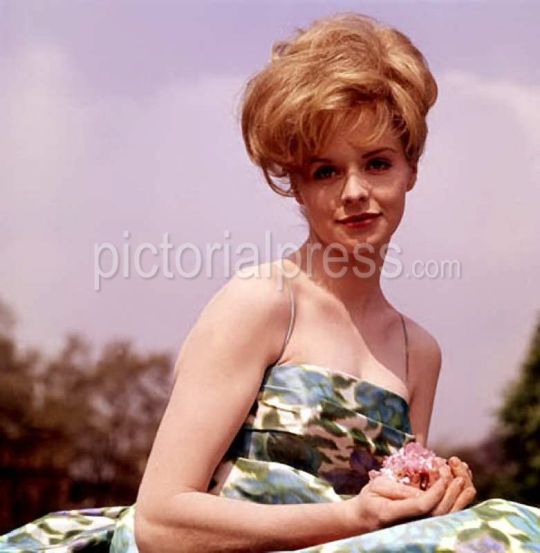
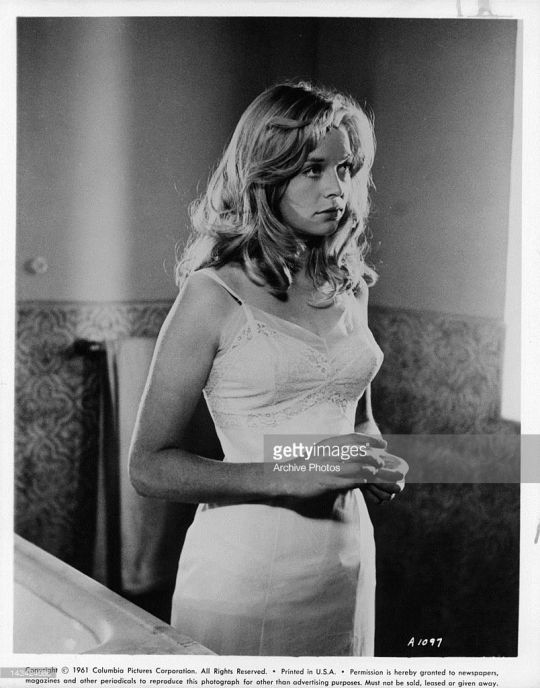
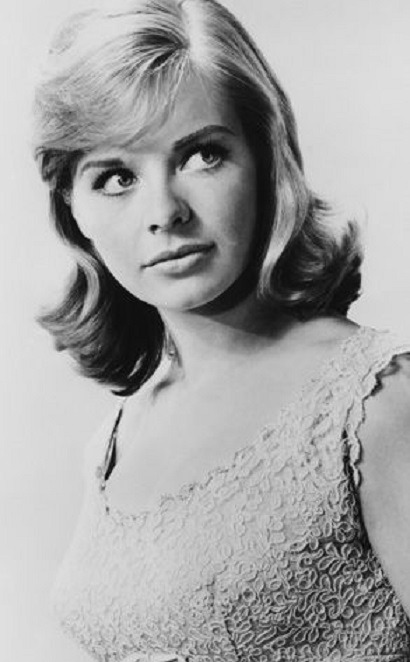

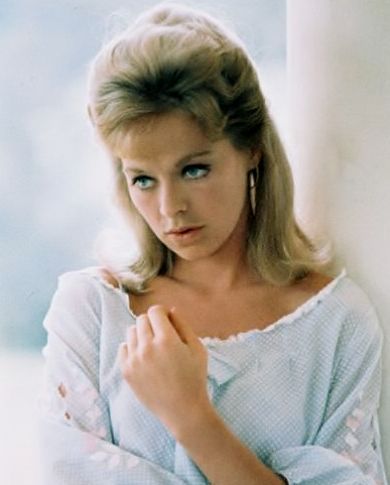

Happy Birthday To Beautiful British Actress Susannah York
(Born 9th January 1939)
Pics Source: Mainly Pinterest.com
#susannah york#birthday girl#born 9th january 1939#beautiful british actress#blue-eyed blonde#stage - screen - tv star#best remembered for her roles in tom jones (1963) - a man for all seasons (1966) - the killing of sister george (1968)#aso remembered for the superman film franchise (1978 -1980 -1987)#oscar nominated for they shoot horses don't they (1969)#108 acting credits#years active 1959-2010#pics source: mainly pinterest.com
39 notes
·
View notes
Photo


The Killing of Sister George (Robert Aldrich, 1968)
76 notes
·
View notes
Note
Out of intense curiosity, what are your favorite old movies with intentional or unintentional homoerotic subtext??
for the sake of this reclist not being fifteen pages long this is not all encompassing/i am not going to include every old movie that has gay subtext/text but these are some of my faves pre-1985 (picked as an arbitrary cutoff for “old”):
wings (william a. wellman, 1927)
mädchen in uniform (leontine sagan, 1931)
design for living (ernst lubitsch, 1933)
queen christina (rouben mamoulian, 1933)
the maltese falcon (john huston, 1941)
anchors aweigh (george sidney, 1945)
red river (howard hawks, 1948)
rope (alfred hitchcock, 1948)
strangers on a train (alfred hitchcock, 1951)
calamity jane (david butler, 1953)
johnny guitar (nicholas ray, 1954)
rebel without a cause (nicholas ray, 1955)
trapeze (carol reed, 1956)
edge of the city (martin ritt, 1957)
sweet smell of success (alexander mackendrick, 1957)
cat on a hot tin roof (richard brooks, 1958)
the defiant ones (stanley kramer, 1958)
some like it hot (billy wilder, 1959)
suddenly last summer (joseph l. mankiewicz, 1959)
the children’s hour (william wyler, 1961)
the singer not the song (roy ward baker, 1961)
victim (basil dearden, 1961)
lawrence of arabia (david lean, 1962)
the tale of zatoichi (kenji misumi, 1962)
the servant (joseph losey, 1963)
hamlet at elsinore (philip saville, 1964)
modesty blaise (joseph losey, 1966)
luv (clive donner, 1967)
the killing of sister george (robert aldrich, 1968)
the odd couple (gene saks, 1968)
butch cassidy and the sundance kid (george roy hill, 1969)
midnight cowboy (john schlesinger, 1969)
funeral parade of roses (toshio matsumoto, 1969)
the boys in the band (william friedkin, 1970)
husbands (john cassavetes, 1970)
cabaret (bob fosse, 1972)
female trouble (john waters, 1974)
mikey and nicky (elaine may, 1976)
la cage aux folles (édouard molinaro, 1978)
a question of love (jerry thorpe, 1978)
the tempest (derek jarman, 1979)
polyester (john waters, 1981)
deathtrap (sidney lumet, 1982)
making love (arthur hiller, 1982)
silkwood (mike nichols, 1983)
yentl (barbra streisand, 1983)
desert hearts (donna deitch, 1985)
the color purple (steven spielberg, 1985)
my beautiful laundrette (stephen frears, 1985)
obviously this is not a complete list/there is no “perfect representation” here/i didn’t include any documentaries/i recommend looking up content warnings but this is a place to start!!
285 notes
·
View notes